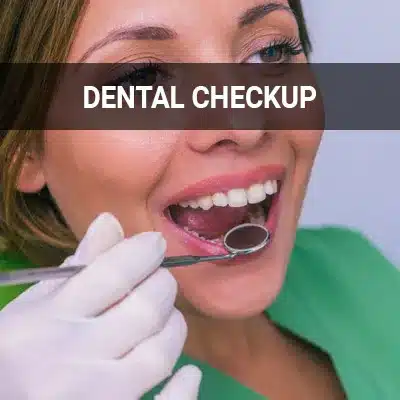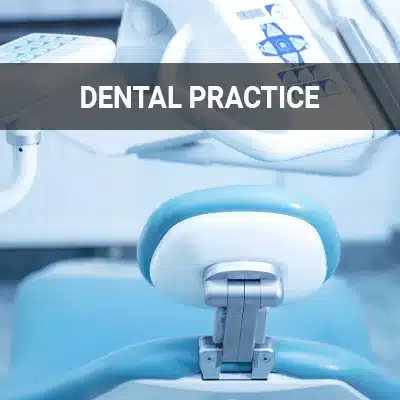
Routine Dental Procedures, Glendale AZ
Routine dental procedures are crucial to maintaining your overall health. They may be able to prevent any damage to your gums and teeth. You should see a dentist for routine dental procedures at least twice a year.
Routine dental procedures are available at Singh Smile Care - Dentist Glendale, AZ in Glendale AZ and the surrounding area. We may be able to help you establish and maintain a dental care routine. Call us today at (623) 400-6009 to learn more and schedule an appointment.

Dental Check-up
Most routine dental visits involve basic teeth cleanings. During these visits, the dental hygienist uses various metal and ultrasonic tools to scrape off any plaque and tartar buildup on the patient's teeth and gum line. The hygienist will spend time working on one tooth at a time and may even floss between teeth. During this time, a patient wears a plastic or paper cloth over the chest. The patient may also wear eye shields.
Once the hygienist has finished the cleaning, the dentist will do a thorough exam. During this exam, the dentist looks for any pockets or gaps between the patient's teeth and gums. Occasionally, patients may get X-rays after a basic cleaning to identify any difficult-to-see or developing problems.
The hygienist will spend time working on one tooth at a time and may even floss between teeth.
Deep Cleaning
Deep cleanings, also known as scaling and root planing, go one step further by addressing anything below the gumline. This procedure has the potential to treat gum disease. When not properly removed, the bacteria in plaque can inflame your gums and cause your gums to pull away from your teeth.
Consequently, the gums may form "pockets" that trap more plaque. This is dangerous because it could lead to bone and tooth loss. Deep cleaning is effective during the early stages of gum disease when the structures below the gum line have not yet been damaged. If the condition is more advanced, then more intensive treatments may be necessary.
Deep cleanings, also known as scaling and root planing, go one step further by addressing what is below the gumline.
Fluoride Treatments
Fluoride is a natural tooth-supporting mineral that strengthens teeth, helps prevent cavities, and fights harmful bacteria. It protects gums and tooth enamel. Professional fluoride treatments provide patients with concentrated solutions that are much stronger than over-the-counter solutions.
The American Dental Association recommends that patients receive professional fluoride treatments every three, six, or 12 months, depending on the patient's oral health. Certain groups may be at increased risk for cavities and require more frequent fluoride treatments. These include those who do not seek regular, recommended professional dental care, use drugs or alcohol frequently, have poor oral hygiene, have a poor diet, or have weak enamel.
Professional fluoride treatments provide patients with concentrated solutions that are much stronger than over-the-counter solutions.
Dental Sealants & Basic Teeth Whitening
Dental sealants work to prevent tooth decay, usually on the back teeth (or the premolars and molars). When a dentist administers dental sealants, they paint a thin, plastic coating (the sealant) on the chewing surfaces of a patient's teeth. The sealant then bonds into the teeth's depressions and grooves to protect the enamel. While brushing and flossing can clean the surface areas of the teeth, they are often insufficient in removing food and plaque from more vulnerable areas, like the nooks and crannies. Sealants work to close these areas off, making them especially valuable for those who already have or are susceptible to tooth decay. Additionally, adults without tooth decay or those who have fillings may benefit.
Those looking to improve the appearance of their teeth may want to consider basic teeth whitening. Though there are many teeth whitening products available over-the-counter, the most effective options are provided at the dentist's office. These products are medical-grade, meaning they are more concentrated and can achieve better results. In-office whitening can achieve results eight times greater than whitening toothpaste. Generally speaking, this procedure is best suited for patients who have healthy teeth and gums and no fillings. However, our team may be able to help patients determine their best options even if they do not meet these criteria.
Sealants work to close these areas off, making them especially valuable for those who already have or are susceptible to tooth decay.
Questions Answered on This Page
Q. What happens during a dental check-up?
Q. What happens during a deep teeth cleaning?
Q. What do dental sealants do?
Q. Can dental bonding improve the look and function of my teeth?
People Also Ask
Q. Why might I need a dental crown?
Q. Why is preventative care important? How can it save you money?
Dental Bonding
Practitioners use dental bonding to restore or improve a patient’s smile. The dentist applies a tooth-colored resin material to the patient's tooth. This material is hardened by a special light that causes it to "bond" to the teeth. Dental bonding can enhance the smile and improve tooth function. It tends to be easier and more affordable than most other cosmetic dental procedures.
Some of the circumstances in which a dentist may employ dental bonding include:
- Repairing chipped, cracked, or decayed teeth
- Protect tooth root that has been exposed as a result of receding gums
- Lessen the appearance of discoloration on teeth
- Close spaces between teeth or make teeth appear longer
- Change the shape of teeth to make them more aesthetically pleasing
This is not an exhaustive list of uses for dental bonding. Speaking with a dental professional will help you determine if bonding is the best way to treat your dental issue.
Dental bonding can enhance the smile and improve tooth function.








